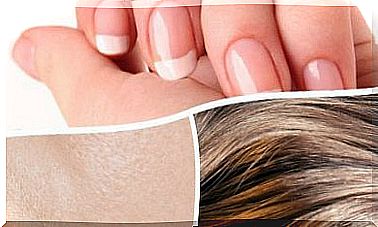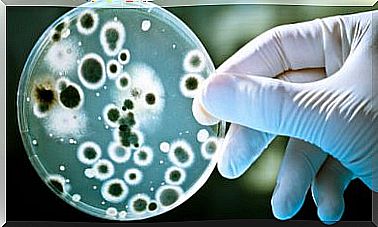Pineal Gland – Regulator Of Cycles And Esoteric “third Eye “
The pineal gland, Latin. epiphysis cerebri is an endocrine gland that plays an important role in regulating sleep, circadian rhythms and seasonal cycles.
This gland is small (only about 8 millimeters long) and is located in a very special, tiny spot in the brain. It is located between the two hemispheres, wedged in the area where the two parts of the hill meet.
The pineal gland is an extremely interesting gland because of the whole world of spirituality, magic and tradition that has arisen around it.
This is not a completely new research subject. In fact, Descartes had already said in his time that this is where the human soul resides. And also, according to more mystical traditions, our “third eye”.
However, beyond these less scientific theories, the truth behind this little gland goes far beyond what science has been able to tell us about it.
It is a gland that is essential to our health and deserves a deeper understanding.
The pineal gland regulates our body’s cycles
Melatonin is of great importance to our body. This hormone allows us to rest, restores sleep, strengthens our immune system and protects against premature aging of the brain.
- It should be known that the pineal gland is completely responsible for the production of melatonin, which depends on light factors – it only takes place in the dark.
- This process is regulated by the photosensitive cells of the retina. They detect light and send relevant information to the pineal gland.
This is an absolutely perfect, fascinating process. It is also known that properly regulating melatonin means more energy and better health. However, the problem with the pineal gland is that it ages faster.
Let’s take a look at some important facts:
Pineal gland and calcification
This is quite a significant problem in today’s busy world. We are constantly in artificial light, which affects the internal balance of the pineal gland.
- We should remember and bear in mind that this gland is very sensitive to factors such as pollution, electric light, stress and vitamin D deficiency.
- It’s also interesting that the pineal gland receives more blood than any other part of the brain. In fact, it receives almost as much blood as the kidneys.
- However, when it reaches maturity, its activity decreases.
- As we age, the pineal gland tends to calcify.
- A calcified pineal gland doesn’t work that well. This means that not only do you experience sleep problems, fatigue and memory problems, but also the risk that in old age your brain will not stay fit properly.
Your “third eye” or seat of the soul
As we said at the beginning, in many spiritual philosophies, the pineal gland symbolizes the third eye. It is capable of spiritual awakening, and it also hides the most sensitive abilities or an elevated state of consciousness.
Practices like yoga stimulate this area of your brain. There are also animals that really have this “third eye”.
Tuatara, for example, is a type of reptile from New Zealand. It has a small eye on the head that performs specific roles: hormonal and thermoregulatory.
How can you care for the pineal gland?
The greatest threat to the pineal gland is calcification.
It is a very difficult process to stop due to the aging of the organism. However, there are some actions that can delay a healthy lifestyle when taken in tandem with a healthy lifestyle.
Here are some tips:
- Live in harmony with the cycles of nature and sunlight.
- in other words, it is recommended to use the sunny hours to go for a walk and sunbathe (but remember to have adequate protection against UV radiation)
- The light emitted by a computer, tablet, telephone or TV set is very harmful to the pineal gland.
- To allow her to do her job properly, stop using these devices one hour before bedtime.
- Sleep in complete darkness.
- Include vitamin D supplementation in your diet.
- Contamination, especially with fluoride, is very harmful to the pineal gland. One way to get rid of excess fluoride is to eat fresh fruit, especially tamarind.
Introduce healthy habits into your lifestyle and pay some attention to this little gland in your brain if you want to really take care of your health.









